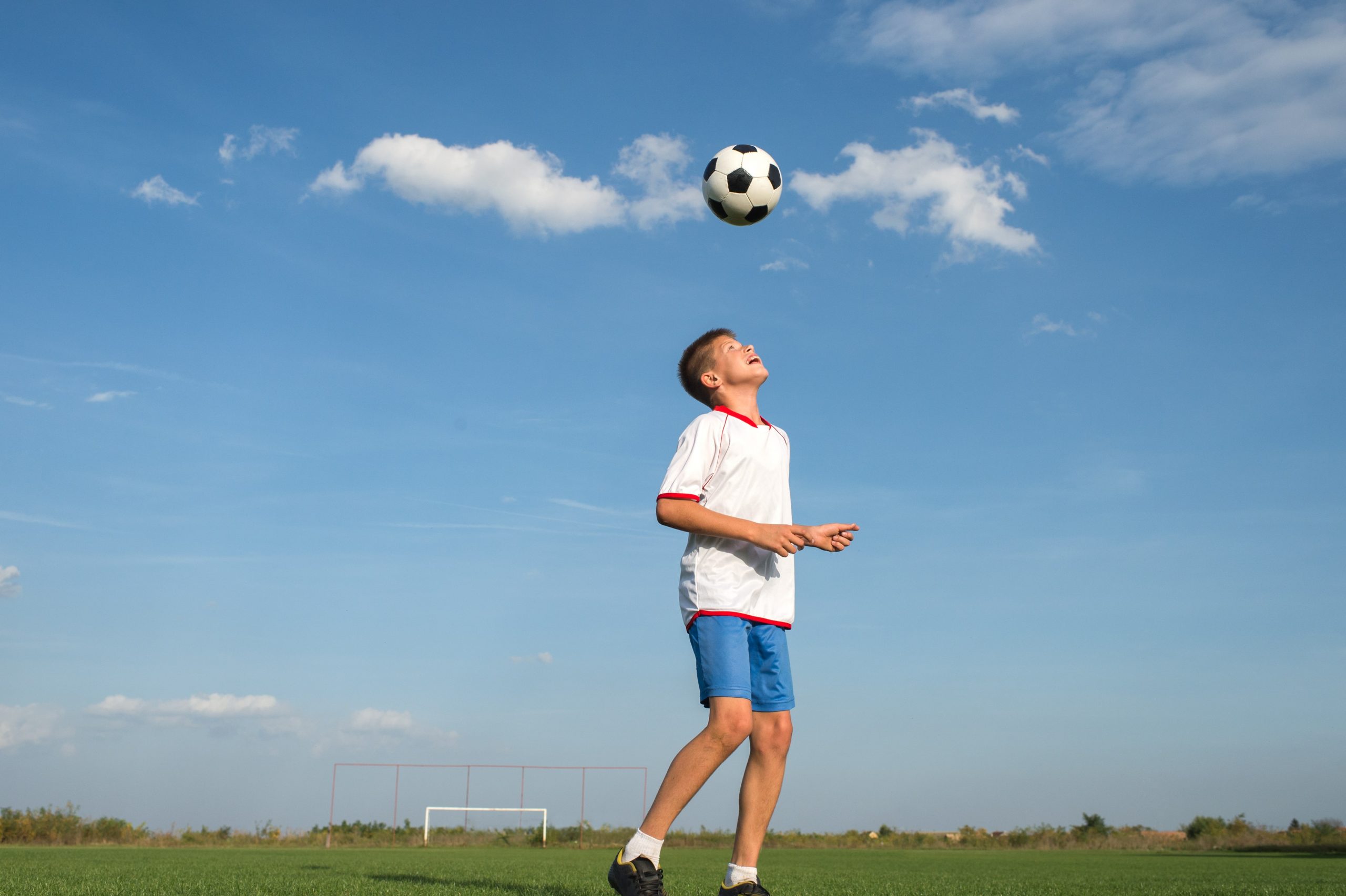
We are in the middle of an exciting time for soccer players—the opening season of the STL City SC team. My daughters are both avid soccer players and are very excited about this.
My oldest daughter just started heading the ball this year, and it made me wonder, “Is it safe to hit the ball with your head all the time?”
Are There Lasting Effects of Soccer Headers?
Heading is a controversial topic among soccer enthusiasts and people who care for soccer players. Studies have been mixed about the long-term effects of heading. A few have shown issues with memory, attention, and reaction speed in soccer players who do “a lot” of headers. Other studies show these issues happen in those who’ve had true head injuries, like concussions. Given all the different opinions, it’s hard to know if it’s safe for our kids!
Since it is so controversial, what can we do to keep our soccer players safe? The most important thing is for these young athletes to learn how to head correctly. US soccer does not allow heading in U11 programs and then limits heading in U12/U13. Anyone younger than this should not be heading or practicing heading the ball! When heading does start, it is important for coaches to teach the proper technique to avoid concussions or other injuries.
Also Read : Meet YouAligned Founder Ashton August: YA Classes Teacher Highlight Series (Interview)
Heading Tips
- Keep your eyes on the ball until it hits your head—There is a temptation when something is coming at you to close your eyes. Doing this will make it more likely for the player to hit the ball in the wrong place, miss, or hit another player. Eye contact with the ball should be made until the header is complete.
- Hit it on the center of the forehead—This part of the player’s head has the most surface area and is less likely to cause injury. It also gives the player more accuracy when they strike it.
- Talk to teammates—Players should let their teammates know that they are going for the ball. An injury is more likely as two teammates go up in the air for a ball at the same time. They will strike heads, and then a concussion may occur.
Identifying Concussions
In addition to the proper coaching of the technique, coaches need to know the signs of a concussion. If a player is experiencing any headache, dizziness, or other unusual symptoms after heading or heading practice, they should come out of the game/practice and be evaluated.
In case of a medical emergency with a child, determine where the nearest accredited, Level I pediatric trauma center is located. St. Louis Children’s Hospital has six pediatric ER locations across the St. Louis and southern Illinois region including St. Louis Children’s Hospital, Children’s Hospital at Memorial Hospital Belleville, Children’s Hospital at Memorial Hospital Shiloh, Children’s Hospital at Missouri Baptist Medical Center, Children’s Hospital at Northwest HealthCare and Children’s Hospital at Progress West Hospital.





